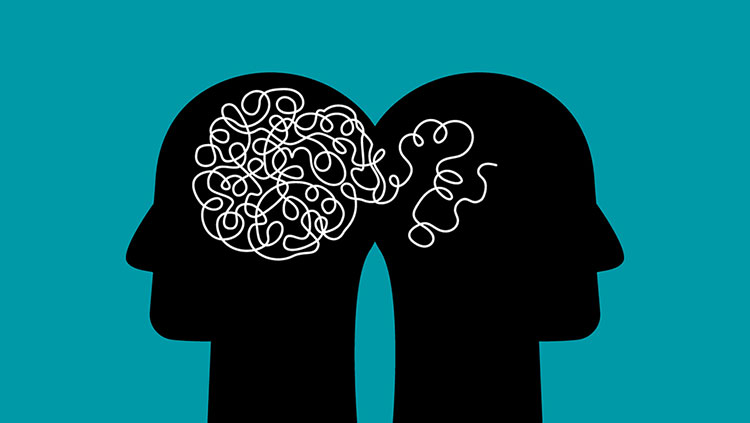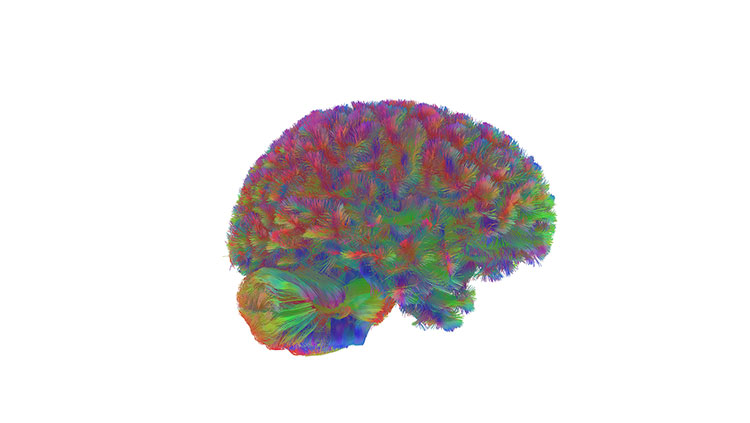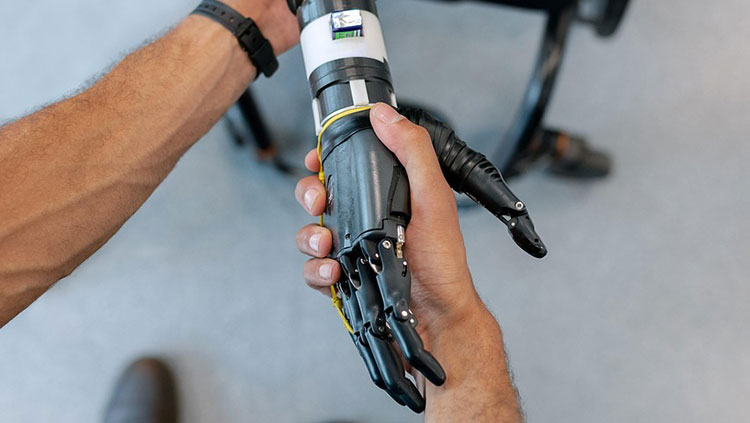ICYMI: NIH Study Provides In-Depth Clues Into Chronic Fatigue Syndrome
- Published11 Mar 2024
- Author Tristan Rivera
- Source BrainFacts/SfN

Chronic fatigue syndrome, or myalgic encephalomyelitis/chronic fatigue syndrome (ME/CFS), is a multisystem disease. It can cause severe fatigue, sleep issues, cognitive and autonomic dysfunction, and worsening of symptoms following minor exertion — severely impacting daily life for six months or more. Research published February 21 in Nature Communications provides a deeper dive into the biological mechanisms underlying the syndrome.
The study, led by the U.S. National Institutes of Health (NIH) and ultimately involving around 70 researchers, included 17 participants out of a pool of 200. The volunteers spent weeks at the NIH Clinical Center in Bethesda, Maryland, undergoing a barrage of tests from muscle biopsies to spending hours in metabolic chambers.
Many of the study’s findings aligned with what’s already known about the syndrome: ME/CSF is primarily a brain disorder, likely brought on by chronic immune dysfunction and gut microbiome changes. However, the paper provided deeper insights into the potential mechanisms underlying the condition, stoking interest in the syndrome.
Big Picture: Estimates from 2015 suggest ME/CFS could affect around two million people in the U.S. The exact cause of ME/CFS is unknown, but many cases develop after an acute infection. Although the study only included a small number of people, skewed towards healthier ME/CSF patients who could undergo the taxing study, this latest in-depth look into the syndrome may allow for new momentum for finding treatments. A National Institute for Neurological Disorders and Stroke (NINDS) working group is also designing a roadmap to set ME/CFS research priorities with hopes of moving closer to treatment development.
Read More: Clues to a better understanding of chronic fatigue syndrome emerge from a major study. NPR
More Top Stories
- AI system with 18 months of film from a baby’s-eye view began associating words with objects. TIME
- Advances in cellular 3D printing techniques allow the formation of thin sheets of brain tissue to better reflect human brain organization, connectivity, and function. Science
- New device allows a man with a prosthetic hand to sense temperature. Science News
- Large analysis of UK Biobank identifies four blood proteins strongly associated with dementia and Alzheimer’s. Nature
- Study suggests a 10% decline in suicide rates across China due to a reduction of air pollution. Science
- Back-and-forth exchanges with children early in their development can help strengthen connections in language regions of their brains. The Conversation
- Artificial human antibody neutralized potent black mamba snake venom, mouse study shows. Science
- Played through a speaker, live musical performances with volume and speed adapted to a listener’s real-time brain data evoked stronger emotions than recorded music. New Scientist
CONTENT PROVIDED BY
BrainFacts/SfN
References
Walitt, B., Singh, K., LaMunion, S. R., Hallett, M., Jacobson, S., Chen, K., Enose-Akahata, Y., Apps, R., Barb, J. J., Bedard, P., Brychta, R. J., Buckley, A. W., Burbelo, P. D., Calco, B., Cathay, B., Chen, L., Chigurupati, S., Chen, J., Cheung, F., Chin, L. M. K., … Nath, A. (2024). Deep phenotyping of post-infectious myalgic encephalomyelitis/chronic fatigue syndrome. Nature Communications, 15(1), 907. https://doi.org/10.1038/s41467-024-45107-3
What to Read Next
Also In Neuroscience in the News
Trending
Popular articles on BrainFacts.org



















